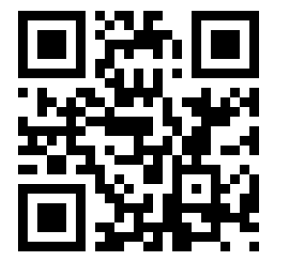You are viewing our site as an Agent, Switch Your View:
Agent | Broker Reset Filters to Default Back to ListQR Codes: Why and Why Not
November 26 2013
Do QR codes kill kittens? I just read Scott's new book about these controversial codes.
I pretty much love everything Scott Stratten does. The man is a genius. However, I was a little underwhelmed with his latest book that took me 39 minutes to read. It was the first book I ever read that was written in the language of "Twitter" -- a picture, then two sentences, another picture, then three sentences. When I read a book, I want to be immersed and dive deep into the topic at hand. This book never took me there. I will still hang on to every word Scott says on his site, UnMarketing.com, but was honestly let down by his book.
So to ride his coattails, since QR codes are a hot topic right now, I have a guest contributor that has a different perspective! It is always good to keep an open mind and listen to different opinions. Let me know your thoughts in the comments. We always enjoy a healthy debate here!
 QR codes are a marketing subject that has been the attention of ebbs and flows of negative and positive criticisms. Many people feel that these codes are just too much of a hassle, and ask way too much of potential viewers.
QR codes are a marketing subject that has been the attention of ebbs and flows of negative and positive criticisms. Many people feel that these codes are just too much of a hassle, and ask way too much of potential viewers.
First, the viewer must have a smartphone, they also must have an application enabling the scanning of these codes, and then there is the task of the viewer actually performing the capture and scan actions. This extensive list of factors necessary for a QR marketing technique to work eliminates a great deal of the target population from ever accessing the function of this code -- whether due to their technology limitations or their unwillingness to perform the tasks of scanning.
On top of all the functional issues with this type of marketing, they are used in ineffective ways, time and time again -- often atrociously so. For example, a QR code on a highway billboard that will be briefly seen by viewers as they whip down the road is not an effective marketing tool. You might as well put the QR code on the dark side of the moon. I would have just said the moon, but I have a suspicion that it would somehow get more scans from thousands of miles away than in this seemingly accessible spot next to a crowded highway.
So then what is the appeal of this new generation of marketing techniques? Sure, they are fancy and get me excited about technology, but I am failing to see the usefulness in their implementation.
The truth is that while QR codes have their setbacks, much of the negativity that surrounds them is a direct result of a history of lack of creativity and attention to detail in their implementation. In reality, these marketing tools can be very effective, but only if they are used in the right way.
The first requirement for an effective QR code is that it should lead to information that is relevant to the viewer's situation immediately, and not to a destination (i.e., a company website). With a little creativity, and a flawless format for viewers, these codes can take you far.
For example, QR codes pose a huge opportunity in real estate to get a home's information out in the most efficient and professional manner possible. Imagine QR codes that are easily scannable on open house brochures, agent business cards, and on listings. With just one scan, a potential buyer can learn all about the real estate agent, this listing, more listings, and an endless amount of additional information. This accessibility and convenience is the epitome of what you strive to facilitate in any marketing campaign.
One of the major benefits to QR codes is the connection that they create between on- and offline marketing, allowing for a stronger, more unified advertising campaign. This is just one example, but if you spend some time, you can come up with numerous practical uses of QR codes. Has the day of traditional advertising campaigns yielded to this new wave of technological marketing? Only time will tell.
Matt Sidford is the founder of Sidford Real Estate in Park City, Utah. He has been a big advocate of using technology to create a successful business since opening his real estate group in 1997.
To view the original article, visit the Tech Savvy Agent blog.









